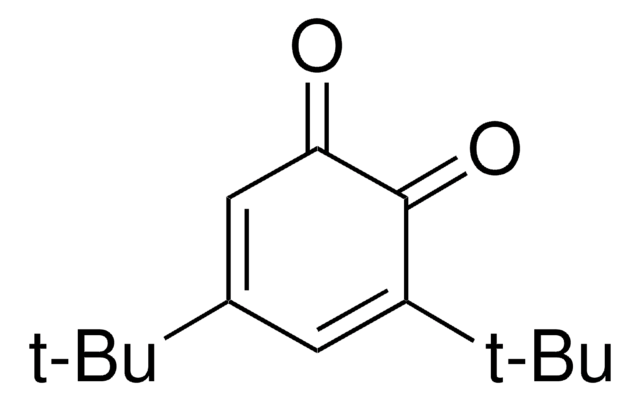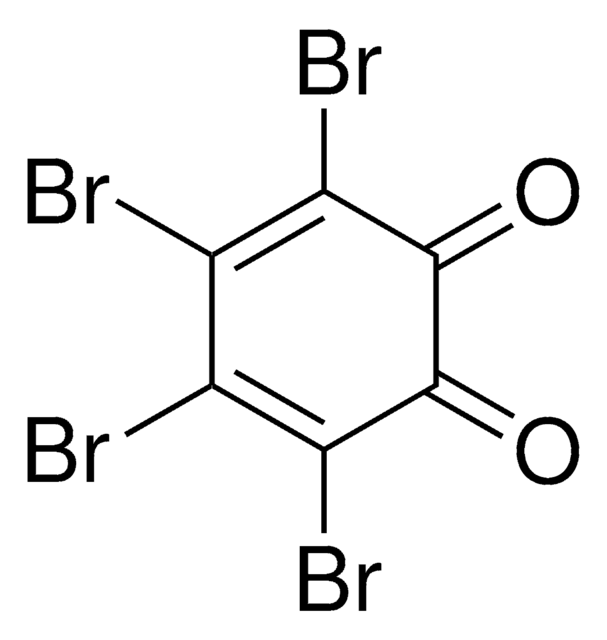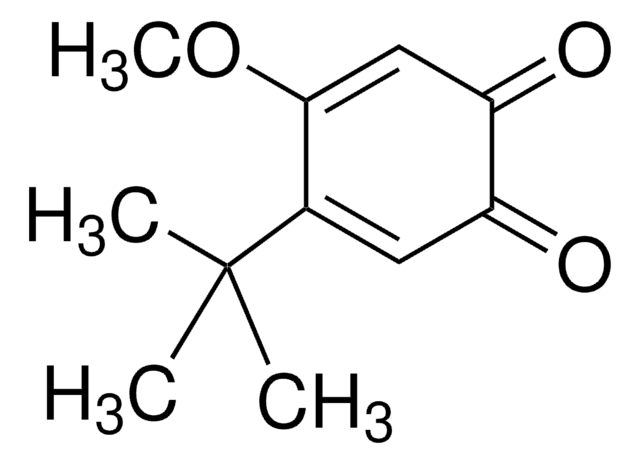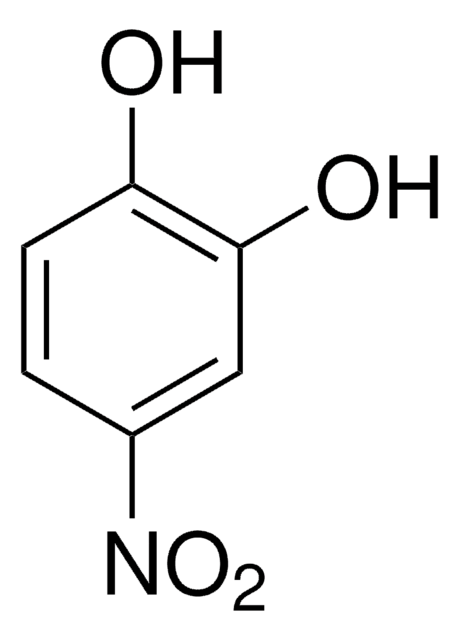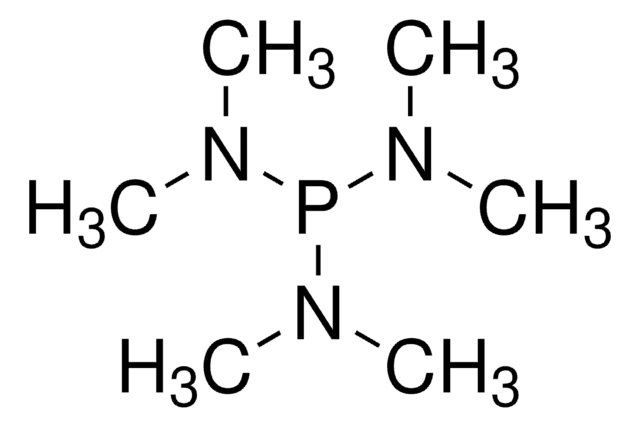36443
Tetrachlorocatechol
technical, ≥95.0% (HPLC)
Iniciar sesiónpara Ver la Fijación de precios por contrato y de la organización
About This Item
Fórmula lineal:
C6Cl4-1,2-(OH)2
Número de CAS:
Peso molecular:
247.89
MDL number:
UNSPSC Code:
12352100
PubChem Substance ID:
NACRES:
NA.22
Productos recomendados
grade
technical
Quality Level
assay
≥95.0% (HPLC)
mp
193-195 °C (lit.)
SMILES string
Oc1c(O)c(Cl)c(Cl)c(Cl)c1Cl
InChI
1S/C6H2Cl4O2/c7-1-2(8)4(10)6(12)5(11)3(1)9/h11-12H
InChI key
RRBMVWQICIXSEO-UHFFFAOYSA-N
¿Está buscando productos similares? Visita Guía de comparación de productos
General description
Tetrachlorocatechol is a metabolite of pentachlorophenol. Acute toxicity of tetrachlorocatechol has been investigated in male and female mice.
Application
Tetrachlorocatechol was used to investigate the inhibition of various ureases by halogenated benzo- and naphthoquinones, potent inhibitors of pure ureases from Bacillus pasteurii and Canavalia ensiformis. It may be used to prepare the copper(II) complexes of the potentially tripodal N,N,O ligand 3,3-bis(1-methylimidazol-2-yl)propionate (L1) and its conjugate acid HL1.
signalword
Danger
hcodes
Hazard Classifications
Acute Tox. 4 Oral - Aquatic Acute 1 - Eye Dam. 1
Storage Class
11 - Combustible Solids
wgk_germany
WGK 3
flash_point_f
Not applicable
flash_point_c
Not applicable
ppe
dust mask type N95 (US), Eyeshields, Faceshields, Gloves
Elija entre una de las versiones más recientes:
¿Ya tiene este producto?
Encuentre la documentación para los productos que ha comprado recientemente en la Biblioteca de documentos.
Los clientes también vieron
Acute toxicities of pentachlorophenol, pentachloroanisole, tetrachlorohydroquinone, tetrachlorocatechol, tetrachlororesorcinol, tetrachlorodimethoxybenzenes and tetrachlorobenzenediol diacetates administered to mice.
Renner G, et al.
Toxicological & Environmental Chemistry, 11(1), 37-50 (1986)
Shaogui Yang et al.
Journal of hazardous materials, 161(2-3), 1281-1287 (2008-06-17)
A novel photocatalysis material, F-Si-comodified TiO(2) (FST) powder, was synthesized by ultrasound-assisted hydrolysis. The prepared material was characterized by X-ray diffraction (XRD), X-ray photoelectron spectroscopy (XPS) and UV-visible absorption spectroscopy, respectively. XRD analysis indicated that the phase of FST was
Smadar Levy et al.
Environmental toxicology and chemistry, 28(7), 1380-1389 (2009-02-14)
Pentachlorophenol (PCP) is used in industrial and domestic applications, including as a biocide and a wood preservative. Metabolism of PCP undergoes oxidative dechlorination, forming tetrachlorocatechol (TCC) and tetrachlorohydroquinone (TCHQ). Both sodium azide (NaN(3)) and TCC appear naturally in soil. None
Hyo-Bong Hong et al.
Applied and environmental microbiology, 68(5), 2584-2588 (2002-04-27)
Aerobic biotransformation of the diaryl ethers 2,7-dichlorodibenzo-p-dioxin and 1,2,3,4-tetrachlorodibenzo-p-dioxin by the dibenzo-p-dioxin-utilizing strain Sphingomonas wittichii RW1, producing corresponding metabolites, was demonstrated for the first time. Our strain transformed 2,7-dichlorodibenzo-p-dioxin, yielding 4-chlorocatechol, and 1,2,3,4-tetrachlorodibenzo-p-dioxin, producing 3,4,5,6-tetrachlorocatechol and 2-methoxy-3,4,5,6-tetrachlorophenol; all of these
Ainura Ashiralieva et al.
FEBS letters, 555(2), 367-370 (2003-12-04)
Polyhalogenated benzo- and naphthoquinones were found to be potent inhibitors of pure ureases from Bacillus pasteurii and Canavalia ensiformis. They also inhibited ureases in whole cells of Helicobacter pylori, Klebsiella oxytoca and Proteus mirabilis. Inhibition was non-competitive with K(i) values
Nuestro equipo de científicos tiene experiencia en todas las áreas de investigación: Ciencias de la vida, Ciencia de los materiales, Síntesis química, Cromatografía, Analítica y muchas otras.
Póngase en contacto con el Servicio técnico


